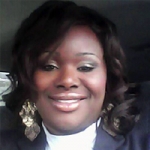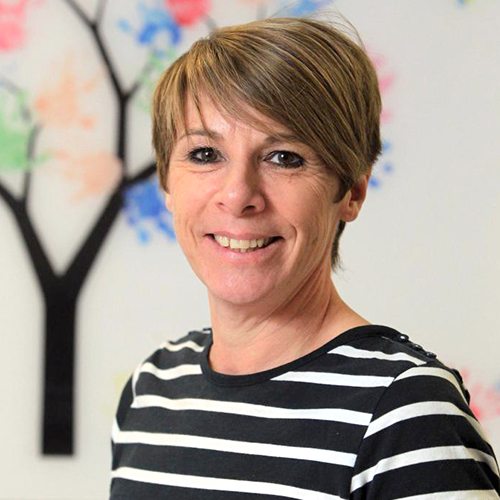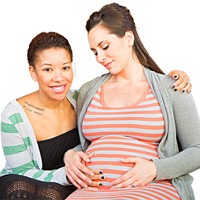 IBCLC Detailed Content Outline: Psychology, Sociology, and Anthropology Focused CERPs - Section V
IBCLC Detailed Content Outline: Psychology, Sociology, and Anthropology Focused CERPs - Section V
Access CERPs on Psychology, Sociology, and Anthropology for the IBCLC Detailed Content Outline recertification requirements. Enjoy convenient on-demand viewing of the latest Psychology, Sociology, and Anthropology focused IBCLC CERPs at your own pace.
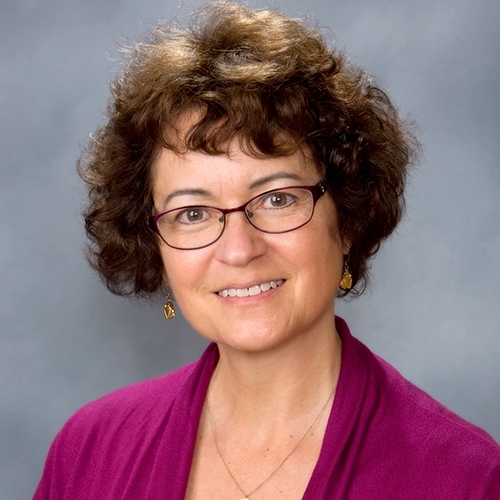
The Postpartum Nest: Helping Parents Lay the Foundation for Their Child's Lifelong Health

Darcia Narvaez, Professor Emerita of Psychology, University of Notre Dame researches moral development and flourishing from an interdisciplinary perspective, integrating anthropology, neuroscience, clinical, developmental and educational sciences. Her earlier careers include professional musician, business owner, classroom music teacher, classroom Spanish teacher and seminarian, among other things. She grew up bilingual/bicultural but calls the earth her home. Dr. Narvaez’s current research explores how early life experience influences wellbeing and moral character in children and adults. She is a fellow of the American Psychological Association and the American Educational Research Association and former editor of the Journal of Moral Education. She is on the advisory boards of Attachment Parenting International, Kindred, Your Whole Baby, and the Self Reg Institute. She has numerous publications, including more than 20 books such as Indigenous Sustainable Wisdom: First Nation Know-how for Global Flourishing; Basic Needs, Wellbeing and Morality: Fulfilling Human Potential and Embodied Morality: Protectionism, Engagement and Imagination. A recent book, Neurobiology and the Development of Human Morality: Evolution, Culture and Wisdom won the 2015 William James Book Award from the American Psychological Association and the 2017 Expanded Reason Award. She blogs for Psychology Today (“Moral Landscapes”) and hosts the webpage EvolvedNest.org.
Every animal has a developmental system or nest for its young that matches up with the maturational schedule of offspring. Humans have a nest too although many people don’t realize it. The human nest refers to the experiences and care that a child receives after birth and in the years that follow. Modern child raising has changed significantly from the nest of our ancestors with concerning results. Learn more about the epigenetic impact of the early nest and how early life experience influences wellbeing and sociomoral character in children and adults as well as societal culture. Delegates will gain an understanding of the essential components of the early nest (including touch, responsivity, breastfeeding, alloparents, positive social support, play, and soothing perinatal experiences) along with ways to empower parents to incorporate them into their infant’s care to create a foundation for lifelong health and well being.
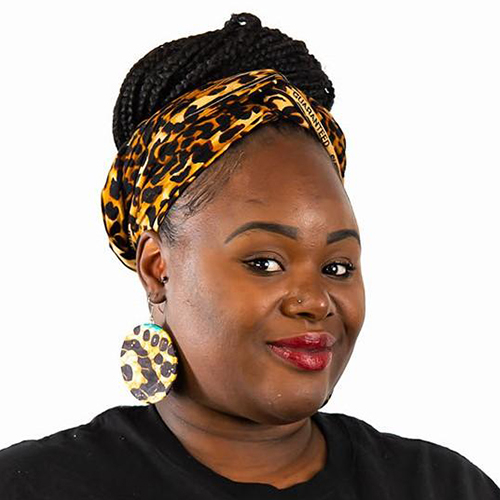

Brandi Gates-Burgess is a Lactation Consultant at Highland Hospital, Community Engagement specialist for the MILK Research Lab, serves on the Community Advisory Board of the UCSF Preterm Birth Initiative, and Co-chairs The Breastfeeding Cultural Outreach Taskforce (BCOT). Recently, Brandi transitioned from her 16-year career providing lactation support to families of the California WIC Program and decided to live her dream. She started her non-profit organization Breast Friends Lactation Support Services where she provides group lactation education and support to Black Families in the Bay Area. She is a mother to 4 breastfed children, wife and world traveler.
In Alameda County, Black women are initiating exclusive breastfeeding, but only ~15% remain breastfeeding by 3 months. For impoverished Black women, especially those in their teen years or who may have less than high school education, these numbers are even lower (9-12%). There is minimum breastfeeding support for black families.
When Black mothers in West Oakland who received peer and professional breastfeeding support through Breast Friends, exclusive breastfeeding at 3 months rose to 63%. This project expanded the Breast Friends model to East Oakland while also training 12 new peer counselors (including 1 father), 24 new group facilitators, and enhancing breastfeeding messaging in the California Black Infant Health program. The project surpassed our expectations. 5 out of the 12 trained peer counselors are now working in other community organizations as Community health outreach worker, peer counselors, doulas and WIC staff.
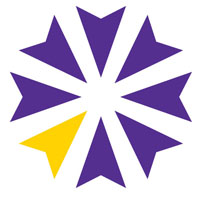
View Details / Enroll
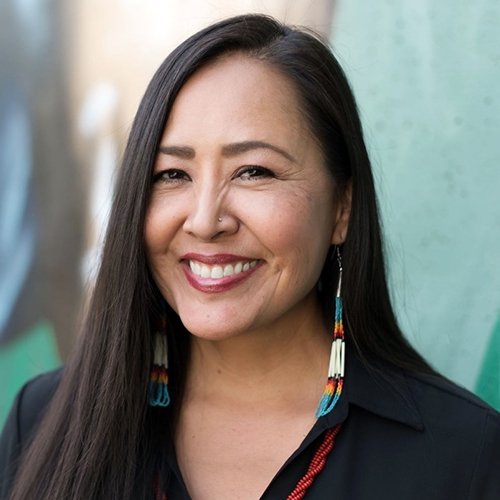
The Power of Story Telling: A Tool for Addressing Historical Trauma and Breastfeeding

Kim is born for Naakaii Diné (Mexican People) and from Tsi’naajinii (Black Streak People) clans. Born in Tuba City, maternally from Tolani Lake, AZ located in the southwestern area of the Navajo Nation. Growing up on and off the Navajo Nation, and residing in various tribal communities throughout her life, Kim is passionate about utilizing her education and experience to promote healthy living through kinship values.
Kim is a International Board Certified Lactation Consultant and has over 10 years of experience in peer-counseling, clinical and educational lactation. Kim’s work has been inclusive of Tribal and culturally diverse communities serving the needs of prenatal, newborns, and post-partum mothers and families. She is a Co-Instructor for the Indigenous Breastfeeding Counselor training course providing cultural breastfeeding and clinical education to those that can serve their community throughout Turtle Island. She also independently consults with Changing Woman Initiative out of New Mexico, a free access birth center serving Indigenous women to reproductive wellness. She is serving her second term on the United States Breastfeeding Committee Board of Directors. Currently, Kim continues to work at Valley Wise Health Medical Center as a Hospital lactation consultant for eight years and is serving the front lines assisting families and COVID mothers during the pandemic with breastfeeding and hospital policies. She also implemented the first Arizona Lactation Mentorship Pilot Program at Valleywise Hospital mentoring two student interns. This allows access to clinical hours to create strategic initiatives to bring BIPOC diversity, equity and inclusion to the field of lactation.
Currently a member of the Advisory Council Committee for the Navajo Nation Breastfeeding Coalition; she will the Urban Dine’ Community Representative for the Phoenix area. This new role will include breastfeeding home visits and telehealth lactation support serving the urban and telehealth rural BIPOC community. She recently collaborated with Wellness Within Reach also providing breastfeeding education and one on one breastfeeding support. Kim's extensive experience in this field has led to opportunities in consulting, which along with her husband synthesized their consulting business in Tribal Indemnity. Within three years, Tribal Indemnity has assumed responsibility of complex projects and strategic planning with one of the largest Tribes in Arizona. She recently established her own small business, Indigenous Breastfeeding Az, dba.
Kim enjoys spending time with her husband of twenty-three years and three daughters of whom she breastfed until they were 2 years old. She also loves early morning runs, hiking, boxing and yoga.
Native people are natural story tellers. This method of knowledge exchange has been around for thousands of years. Story telling is a fundamental tool that has been used to pass down information, share ideas and a teaching opportunity within Indigenous communities. It allows understanding of lived experiences and consequences to sustain and restore balance for many generations. An important component of lactation counseling is we can learn from an Indigenous lens from listening to one’s story when addressing breastfeeding families.
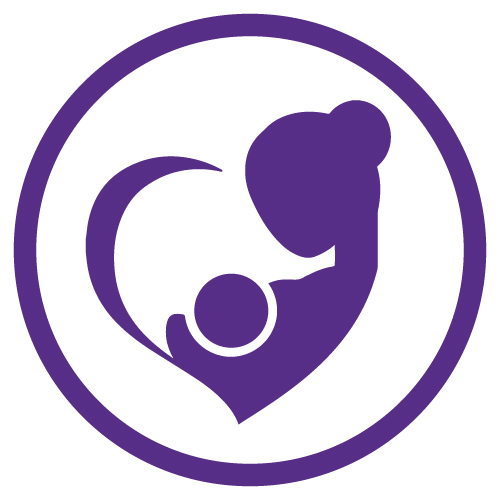
View Details / Enroll
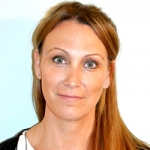
The Power of Storytelling - The Human Experience in the Neonatal Intensive Care

Jodi is registered nurse with a strong passion for preemies, developmental care in the NICU, parent teaching, and education. When not at the bedside, Jodi is hard at work offering support and lending a virtual hand to parents of NICU babies through her organization Peekaboo ICU. Jodi is the president/CEO as well as a Family Support Specialist that heads up the organization’s Journey Bead Program- offering a tangible way to track, document, and celebrate milestones in the NICU. Jodi attended college in Ontario Canada where she completed her nursing degree. After college, Jodi earned a number of certification in neonatal nursing including her RNC-NIC, Developmental Care Specialist certification, and an Advanced Certification in Neonatal nursing while attending BCIT’s Bachelor of Science in Neonatal Nursing degree program. Jodi is currently working towards her Masters of Science in Nursing-Care Coordination degree through Capella University.
Storytelling is the foundation of the human experience and can be an extraordinarily powerful tool used to connect families and healthcare providers in the neonatal intensive care. The NICU is a fast-paced, high stress environment so it’s easy to lose site of the story, but it is the story that can make a difference, not only to the families you serve, but to you as well. It is through storytelling that a compassionate, real approach to care and medicine will bring change to the NICU experience, increase patient satisfaction, and decrease burnout and compassion fatigue. In this presentation you will learn how to develop more empathetic relationships with families on the basis of a deeper understanding of their human experience. Follow Jodi as she explores the principles of storytelling, evaluates the use of narrative medicine in NICU education, and teaches ground breaking strategies to recreate a positive and profound NICU experience through the power of human connections.

View Details / Enroll

View Details / Enroll
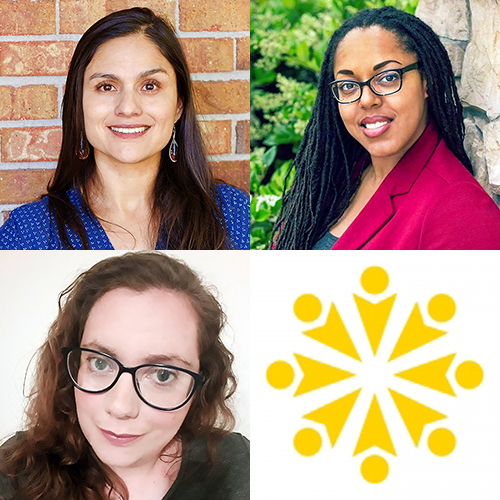

Paulina Erices is the mother of three multicultural Latino children and Project Director for Lifespan Local. Paulina earned her BS in Psychology from the Pennsylvania State University, a MS in Organizational leadership from the University of Denver and is completing her PhD in Health and Behavioral Sciences at the University of Colorado - Denver. Paulina has over 18 years of experience working with families with young children. As a Maternal Child Health specialist for Jefferson County Public Health, she developed a NICU follow-up home visitation program and the pediatric emergency preparedness plan, co-founded and coordinated the Conectando Network (former Adelante Jeffco), established community navigation and lactation support groups focused on the Latino Spanish speaking community, and lead other initiatives to support leadership and partnerships among communities and organizations. During the COVID-19 pandemic, she managed the new program Whole Community Inclusion to ensure the pandemic response and recovery implementation included health equity practices that recognize the needs and the strengths of priority populations in the county. Her areas of current work include promoting perinatal and infant mental health along the continuum of care; building community capacity to navigate health and education systems; facilitating organizational change to embrace linguistic and culturally responsive practices; and establishing community-placed participatory programs to strengthen communities. She likes to be with people, learn from and with others, and connect passions for meaningful work.
In 2014, Ghanaian-American mother and photographer, Vanessa Simmons authored the Normalize Breastfeeding™ movement to address the taboo of public breastfeeding in modern society. Her mission was to document diverse variations of normal infant feeding, across cultures and delivery methods of human milk.
Through Simmons' viral blog, her photographic speaking tour, philanthropy, and artistic inspiration; she mobilized and motivated thousands of women to share their breastfeeding photos on social media. After a very successful first year, she reached out to the Mayor of San Diego to proclaim June 27th the International Day to Normalize Breastfeeding, in support of the worldwide anniversary event!
Lactation educator and activist, Vanessa Simmons, is now speaking out at conferences and events across the country to eliminate general miseducation around the topic. On the Normalize Breastfeeding podcast, she interviews guests about experiences, advocacy, and activism within the infant feeding community worldwide.
As a public speaker, Simmons is focused on transforming the modern mindset around the natural, yet difficult task of breastfeeding. Vanessa trains lactation professionals to better understand and connect with millennial families online. She creatively motivates and inspires families to be mindful that this is a time to be cherished, and although fleeting, it is also a time to reinvent what will be acceptable for feeding generations of the future.
Simmons is an aspiring author and resides with her supportive husband and three children in San Diego, CA.
Lucy Ruddle is an IBCLC in the UK. She has a thriving private Practice on the South Coast and a busy Facebook page known for it's funny, relevant, and informative memes about breastfeeding and parenting. Lucy qualified in 2018 after 5 years of volunteering as a peer supporter and later as a breastfeeding counselor for a national breastfeeding helpline. She has written a book on relactation, called "Relactation - A guide to rebuilding your milk supply." which was published by Praeclarus Press in January 2020. Lucy's interest in relactation started after she went through the process herself for her eldest baby, and her drive to qualify as an IBCLC came from a second challenging breastfeeding journey with her younger son who was unable to latch for several months. Aside from lactation, Lucy holds a diploma in Child Psychology and worked for 15 years in early years settings, both with the children and in roles supporting parents. She prides herself on her listening focused approach to lactation support, and sees it as the key to good practice in her own work.
It’s a wonderful feeling when you’re able to support a family in getting to a place of successful breastfeeding/chestfeeding. Those moments when things suddenly click and baby starts nursing effectively and their overwhelmed parents are able to finally see an end to their struggles, are heartwarming and we celebrate those achievements for both our clients and ourselves. What doesn’t get talked about very often however, is the struggles that go alongside those triumphs. The caregiver burnout, compassion fatigue, guilt, and overwhelming feelings of failure that can derail our confidence in ourselves as care providers. This panel digs deep into the realities of working as a lactation care provider, examining both the struggles and possible solutions.
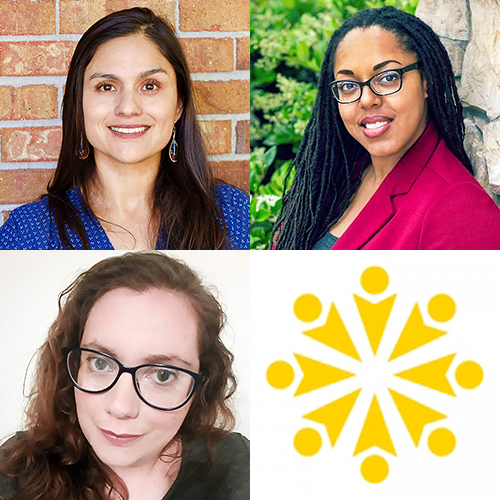
View Details / Enroll

The Remarkable Transition From Liquid to Air at Birth: The Implications for Neonatal Resuscitation

Karen H. Strange is a Certified Professional Midwife (1996), American Academy of Pediatrics/Neonatal Resuscitation Program Instructor (1992).
She is founder of the Integrative Resuscitation of the Newborn workshop, which includes the physiology of newborn transition. She teaches the “when, why and how” of helping newborns that are either not breathing or not breathing well, with incredible clarity. She helps the provider have a sense of what the baby is experiencing which leads to a more appropriate response to newborns in need. Karen has done over 1,000 hours of debrief/case reviews regarding resuscitation. She is an international speaker and has taught over 14,000 people worldwide. There are many neonatal resuscitation instructors but Karen teaches practical neonatal resuscitation, regardless of the place of birth. And her teachings instill a strong sense of confidence and competence in providers, so they can respond in the least traumatic way.
Topic: The Remarkable Transition From Liquid to Air at Birth: The Implications for Neonatal Resuscitation - [View Abstract]
Topic: When You Know Better, Do Better - [View Abstract]
Topic: When, Why and How to Breathe for Baby at Birth: More than Neonatal Resuscitation and the Failures in Resuscitation - [View Abstract]
Karen Strange delves into the subject that she knows best: neonatal resuscitation! Karen has accumulated over 1000+ hours of case reviews from birth professionals across the globe. From these debriefs, she’s identified exactly what gets missed, typical misunderstandings and the role that fear and panic play when delivering skills. In this presentation, Karen clearly explains and defines the when, why and how to respond to a newborn either not breathing or not breathing well, while providing trauma-free care regardless of where the baby might be born. At a fully equipped hospital, in a developing country or at home. You’ll leave her presentation with a new sense of clarity and deeper understanding as you confidently respond to babies who need your help.
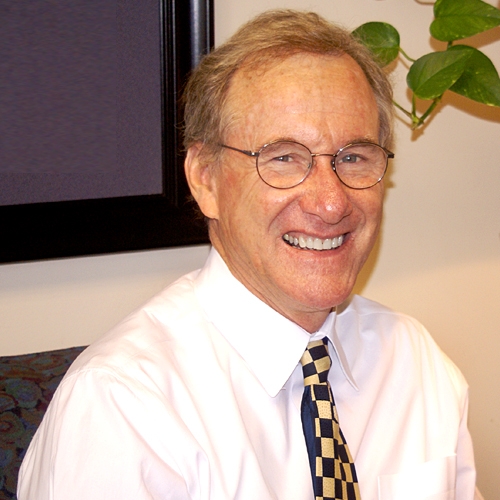
The Return of Breastsleeping: Humankind’s Oldest and Most Successful Sleep and Feeding Arrangement

JAMES MCKENNA (B.A., University of California, Berkeley; M.A., San Diego State University; Ph.D., University of Oregon) Rev. Edmund P. Joyce, C.S.C., Professor of Anthropology
McKenna pioneered the first behavioral and electro-physiological studies documenting differences between mothers and infants sleeping together and apart and has become known worldwide for his work in promoting studies of breast feeding and mother-infant cosleeping. A biological anthropologist, and Director of the Mother-Baby Behavioral Sleep Laboratory McKenna began his career studying the social behavior and development of monkeys and apes with an emphasis on parenting behavior and ecology. He has published over 150 articles and six books including a popular parenting book Sleeping With Your baby: A Parents Guide To Co-sleeping. He has coedited Ancestral Landscapes In Human Evolution, Evolutionary Medicine, and a more recent co-edited volume Evolution and Health: New Perspectives (Oxford University Press. He won the prestigious Shannon Award (with Dr. Sarah Mosko) from the National Institutes of Child Health and Development for his SIDS research and is the nation's foremost authority and spokesperson to the national press on issues pertaining to infant and childhood sleep problems, sleep development, and breastfeeding.
Breastsleeping refers to bedsharing-amongst breastfeeding mothers and infants occurring in the absence of all known independent risk factors.
Given that most breastfeeding mothers bedshare, there is a critical need to develop a new SIDS/SUID discourse, one that employs harm reduction strategies, family- tailored education, evidence-based medicine, and primary advice formulated by breastfeeding and lactation communities, researchers and associations. This new bottom-up, evidence-based discourse first and foremost respects what parents say they need, want, can and are willing to do.
This discourse acknowledges that, in the United States, bedsharing is common and what helps us to understand it is to reference scientific studies (heretofore dismissed by ‘authorities’) on the powerful infantile and parental biological factors that motivate bedsharing, and the realization that sleep-related risks are not co-equal but vary along a significant continuum of relative risks ranging between acceptable (especially where exclusively breastsleeping occurs i.e. where hazardous factors are eliminated) to unacceptable where a variety of well independent “risk factors’ are present.
I argue here for recommendations based on evidence-based medicine rather than the ideologically driven opinions and assumptions of those making the recommendations which are failing after 20 years of attacks on bedsharing and bedsharing families.

View Details / Enroll


Lisa Leppard has worked within a Neonatal Tertiary Unit for 30 years in Clinical, Management, Network and National roles. Her current role, which she has undertaken for 19 years, has been developing the post of Clinical/Family Support Lead Nurse within a tertiary Neonatal Unit, utilising clinical evidence, audit, data and parent/carer feedback. She is responsible for the completion of national databases i.e. MBRRACE & PMRT. Initially this role was part-time but she has developed it, making it into a full-time role and leading a team of 3. The team also includes a clinical psychologist and to gain funding for this role, she worked collaboratively on the business case as part of the Neonatal Parents Mental Health Framework. The team ensures that Family Centred Care remains integral to the unit's ethos & that the parents/carers are given a voice and are well supported. Until recently, she was also the Safeguarding Lead for the Neonatal Unit and completed Level 3 training in Safeguarding. She has extensive experience with audit, working with all levels of the multidisciplinary teams. She was the lead for the BLISS Accreditation of the UHS Neonatal Unit, which was the first unit to be awarded Family Friendly Accreditation within the UK. She was recently part of the BLISS working party to review and update the BLISS audit tool and has also been a Professional BLISS Baby Charter Assessor. She has been the Thames Valley and Wessex Neonatal Network Lead Nurse for Palliative Care for 6 years. To facilitate standardisation of palliative care across the Network, she co-wrote the Palliative Care Pathway adopted and adapted in 2014 by TV&W NNW. She recently facilitated the review and update of the Palliative Care Pathway within the Network. In 2017, she contributed to the review and re-launch of the Together For Short Lives Neonatal Palliative Care Pathway. She is a chapter co-author in the new Palliative Care Text Book for Neonatal Nurses. She co-wrote the chapter on the Nurse’s role in the decision making process. (Neonatal Palliative Care for Nurses. Springer, 2020)
As lead of the Family Support Team, Lisa has developed a link with the Fetal Medicine Team working with families where a life-limiting diagnosis has been made to both support and plan the care of the parents and their baby at delivery and beyond, as well as completing ACP’s and discussing symptom management with parents and medical colleagues. This process includes acting as an advocate for the baby and their families, and always listening to their individual needs. She was part of the team to adapt a Perinatal Palliative Care Pathway for the Wessex Region. She has also worked collaboratively with the Multidisciplinary Paediatric teams to develop pathways to ensure the transition of care of neonates to Paediatrics is seamless & the parents/carers are well supported in the process.
Lisa has been seconded to develop the role of Neonatal Palliative Care Specialist Nurse at Naomi House, a local children’s hospice, raising the profile of hospice care being accessible to neonatal families and staff. She has developed a referral pathway and has visited all the units in the Wessex region, establishing contacts & promoting this as a choice to be offered to parents. She has undertaken the UNICEF Breast Feeding Training course and supported the Breast Feeding Lead Nurse with working towards the Baby Friendly Initiative within her unit. She completed a Counselling Diploma in 2016 and qualified as a Civil Mediator in 2018. Both of these qualifications have enhanced her communication and listening skills when working with families and professionals at all levels. She has a proven track record of managing and defusing challenging situations. She has developed Parental Support Groups and initiated a Father’s Group on the Neonatal Unit.
End of life care in the NICU is challenging for parents and staff alike. Nurses are a vital part of the NICU team and during end of life care they facilitate support and information to parents as well as colleagues and provide regular assessments of the baby. Accurate and consistent information is vital for the parents to feel empowered to engage fully. This part of a neonatal nurse's role can be emotionally challenging, and this is an important point to highlight. This presentation aims to evoke discussion around the nurses role in the decision making process when moving to end of life care of a baby and includes measures to ensure that staff feel involved and supported throughout the process.
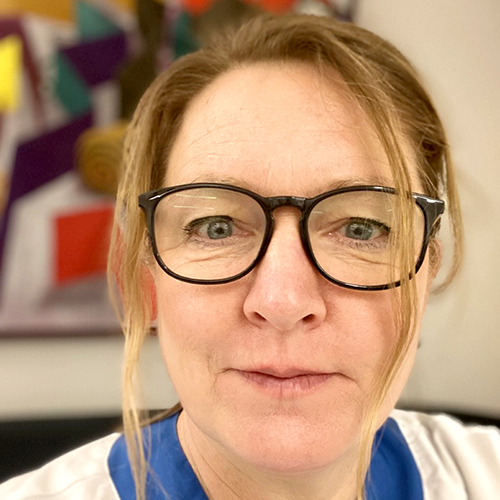
The Swedish Experience of Parental Involvement and Nurturing Care of Extremely Preterm Infants in the NICU

Became an RN, 1994. PhD in medical sciences Uppsala University, Sweden, 2012 (The name of the thesis: Kangaroo Mother Care - Parents’ experiences and patterns of application in two Swedish neonatal intensive care units).
Currently one of two Head nurses at the NICU in Uppsala, Sweden and are responsible for nursing care research, education and nursing care improvement. Also an associate professor at Uppsala University. Is an active researcher within research area around neonatal care and has about 30 scientific publications in peer-reviewed journals.
This presentation will focus on the nurturing care of extremely preterm infants and their parents. Parent-infant separation is commonplace in NICUs and even more if the infant is born extremely preterm. Parent’s presence could be restricted by the rules and routines in the neonatal intensive care environment and skin-to-skin contact is not always possible due to the infant’s condition. Early and extensive contact between the infant and the parents enables the parents to get to know their infant and to feel and act like parents. At the NICU in Uppsala, Sweden, our experience is that parents, even those who have an extremely preterm infant want to be present and to stay close, 24/7, to their infant during the infants NICU stay. The aim of this presentation is to report clinical experiences from the NICU in Uppsala about how the NICU environment and NICU staff can facilitate or hinder parental presence, parental participation, and skin-to-skin contact when the infant is born extremely preterm.

View Details / Enroll

The Tipping Point in Childbirth Education: The Consequences of Ignorance

Penny Simkin, PT, is a physical therapist who has specialized in childbirth education and labor support since 1968. She estimates she has prepared over 13,000 women, couples, and siblings for childbirth. She has assisted hundreds of women and couples through childbirth as a doula. She is author or co-author of books for both parents and professionals, including “The Labor Progress Handbook;” “Pregnancy, Childbirth, and the Newborn: The Complete Guide;” “When Survivors Give Birth: Understanding and Healing the Effects of Early Sexual Abuse on Childbearing Women;” “The Birth Partner: A Complete Guide to Childbirth for Dads, Doulas, and All Other Labor Companions,” She has developed teaching materials for birth classes and produced several videos for educators, doulas, and families , the latest of which is for siblings-to-be, “There’s a Baby.” She is co-founder of DONA International (formerly Doulas of North America) and PATTCh (Prevention and Treatment of Traumatic Childbirth).
Currently, she serves on the editorial board of the journal, Birth: Issues in Perinatal Care, and serves on the senior faculty of the Simkin Center for Allied Birth Vocations at Bastyr University, which was named in her honor.
Today, her practice consists of childbirth education, birth counseling, and labor support, combined with a busy schedule of conferences and workshops.
Penny and her husband, Peter, have four grown children and eight grandchildren from 11 to 28 years of age, two grandchildren-in-laws, and a pug, Lola.
Penny will explore trends in childbirth education over the past quarter century when childbirth education became marginalized with fewer than half of first time north American childbearing families taking any childbirth classes. Reasons and implications of a poorly informed childbearing public will be discussed. Penny will discuss her perceptions of what is missing in childbirth education today, and will suggest some solutions. She will review knowledge essential for families to make choices in maternity care. Penny calls for more skill building in classes relating to comfort measures and improving labor progress.




